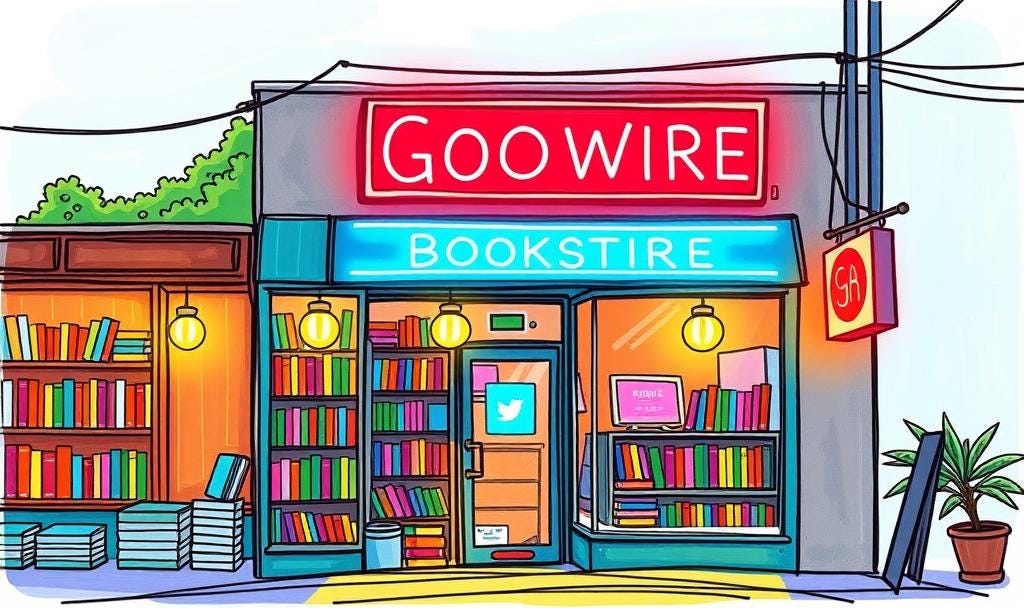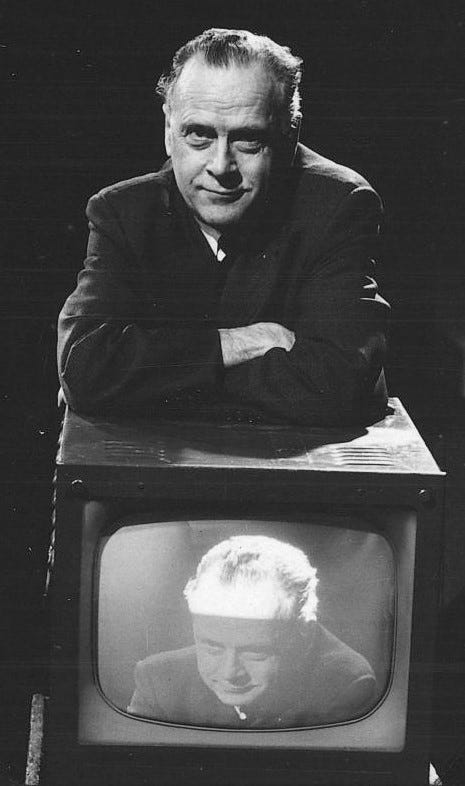Books Aren't Rational. They're Tactile.
Back in the greasy, disco-lit haze of the 1970s and the dawn of the Reaganite ‘80s, the publishing world churned out a billion paperbacks. They were dirt cheap, some even free, handed out like girlie pamphlets on the Vegas strip.
But there was a hook: they were riddled with ads, mostly from the cigarette barons who’d been booted off the TV and radio airwaves by the sanctimonious 1969 federal advertising ban that limited Joe Camel to lumbering along the printed page only.
The public spat ‘em out like bad moonshine and the critics bayed. One critic prophesied a dystopian literary future where you’d be deep in the brooding currents of Hemingway’s Old Man or Wolfe’s electric prose, only to flip the page and confront: “Are Your Underarms Really With It?”
On paper, it was a stroke of genius. Advertisements had for years been littering the pages of magazines, many of which were filled with some of the finest writing. Why not books?
Indeed, fast-forward to today, and the whole scam’s a triumph in the digital carnival: online “reading” is just Times Square shrunk to your pocket, a blitz of blinking banners, vapid clickbait drivel. Rivers of cash sluice into the coffers of the cyber-billboard overlords.
So here we sit, our reading experiences inundated with distraction and commercials, yet nobody has dusted off the idea to put advertisements into books. It’s a riddle wrapped in a mystery inside an enema, the kind of thing that ought to jam a crowbar in the spokes of the rational mind and send it somersaulting over the handlebars into the ditch.

Nassim Taleb, that prickly Levantine sage, thinks the idea flopped because authors are artisans with their souls in the game and advertising is anti-soul. Putting them together is like putting paper with fire.
I don’t buy it.
Magazine scribblers pour their guts into those monthly dispatches, yet we swallow the ads just fine. Online content creators, too: tons of sweat and soul, yet ads confetti the online world.
On the flipside, there are a gazillion books with no soul but we won’t tolerate ads in them. There ain’t no romance hack who wouldn’t take a fiver to tweak “Her heaving bosom quivered in his callused hands” to “Her heaving bosom, snug in her Playtex bra, quivered in his Marlboro-Man like hands.”
No, it ain’t the soul that was the snag. It’s the book experience itself that recoils from the marketer’s paws. There’s a sanctity to reading a book, a whiff of the communion chalice.
That’s the thread the doomsayers are missing today in their endless keening about reading’s twilight in this pixelated perdition we call “the information age.”
Take James Marriott, one of the chief mourners, who unlimbered his self-styled magnum opus on the subject just last month.
Marriott strikes me as one of today’s leading men of reading and this essay held promise. He’s a fan of Iain McGilchrist’s hemisphere hypothesis, and his essay led with a quote by Marshall McLuhan disciple Neil Postman. I was expecting something compelling.
What a letdown.
Marriott’s essay hoists the flag of the left-brain brigade: the cold calculus of rationality, the ledger-book logic of productivity, the shiny badges of success and salubrity. Books, he laments, were the great enablers of all that tidy virtue, and now, with screens gobbling our gaze, we’re adrift in entropy.
Well, if it’s all left-hemisphere hoo-ha, those ad-riddled paperbacks should’ve been a slam-dunk success. But they weren’t. That Edselian idea was concocted in the left hemispheric abstraction cooker.
Marriott’s not entirely off the beam, mind you. His jabs at the digital scrum are accurate at some level.
The problem is, his jabs are like warning the cheerleader that bedding the whole varsity squad might leave her sore in the morning. True enough, that. But there’s deeper rot at work, the kind you can’t spell out to the girl, even though you might try and, in the process, merely stack up more left-hemispheric laments for her to consider before crawling into the back of the pickup truck: the clap, the twittering and giggling whispers in the girls locker room, the ghost that haunts the memory for the rest of one’s life.
That’s Marriott’s essay: piling on the left-hemispheric laments, blind as driftwood to the McGilchrist-McLuhan undercurrents.
In his windy exegesis, he misses the heart of the matter:
Reading a book is a deeply tactile experience.
The heft, the crinkle of pages, the ink on your fingertips, even the smell of decomposing vanilla if you’re blessed enough to be reading an old book. It’s an experience, and experiences are fleshly yet intellectual, woven into sinews and breath. Experiences like reading from a book defy the scalpel of words that the intellect wields like a butter knife against the grund of reality.
The heart has reasons the head can’t understand.
And the heart is in the body.
There’s something about the book medium itself that transcends mental effort to understand. Put another way, there’s something the left hemisphere can’t appreciate about the book reading experience because it’s exceedingly difficult, if not impossible, to articulate and quantify. The whole thing’s gotta be left vague.
Marriott? He jumps in, articulating all the reasons . . . and all of them like the left hemisphere warnings to that cheerleader who’s gonna be walking funny the next morning.
Online prose is everything Marriott celebrates about the book, but it’s everything on crack cocaine.
Online prose is hyper-rational, hyper-logical, hyper-productive.
Hyper-Cartesian.

Marriott oughtta crack open that McLuhan-Postman ledger again. “The medium is the message,” the old Toronto prof McLuhan growled. It’s not the piffle it peddles, but the way it changes your physical senses and kneads your nerves. “Media,” McLuhan explained, are tools that extend the individual’s physical senses which, in turn, affect him mentally. Similarly, Postman taught that every new physical tool comes with an idea embedded in it.
In the McLuhan-Postman arena, it’s all about the intertwined physical and mental experience. The crux of the matter is in the experience itself, which starts with the body.
Body, touch, soul, mind . . . all coming together in ways that we must explore slowly because our minds can’t readily grasp them. We need to recognize the physical effects that different forms of media have on us, which then affect us mentally . . . and eventually spiritually. It takes time, yes, but that’s why we oughtta embrace new technology slowly, even patiently and with caution, not like frat boys at an open bar.
Speaking of which, if you see one of those frat boys injecting vodka into his rectum to get drunk faster, don’t caution him with left-hemispheric laments like intestinal disorders and colon problems down the road. Don’t tell him he can get just as drunk by drinking the stuff normally.
No, criticize him on grounds that the rectum approach is rational: efficient, cost-effective, and logical. Hyper-so. Like online reading. In a sane world, that would be enough to shame him into pouring a decent Cabernet into a crystal snifter.
And drinking it while holding a real book.
It’s irrational, but that’s the entire point.
